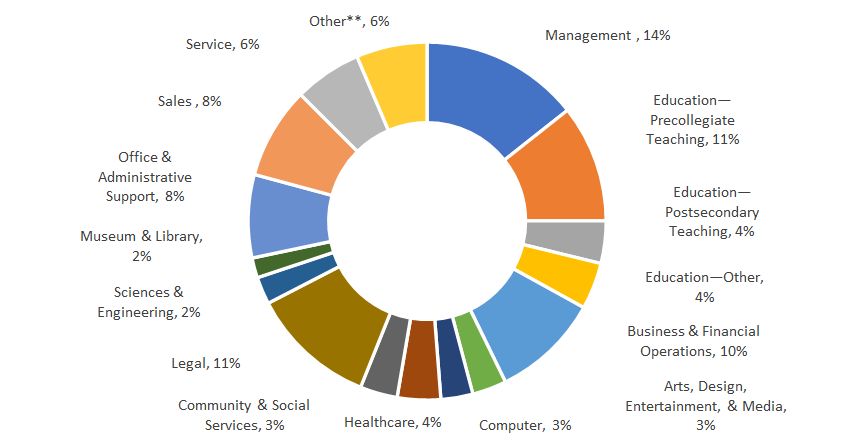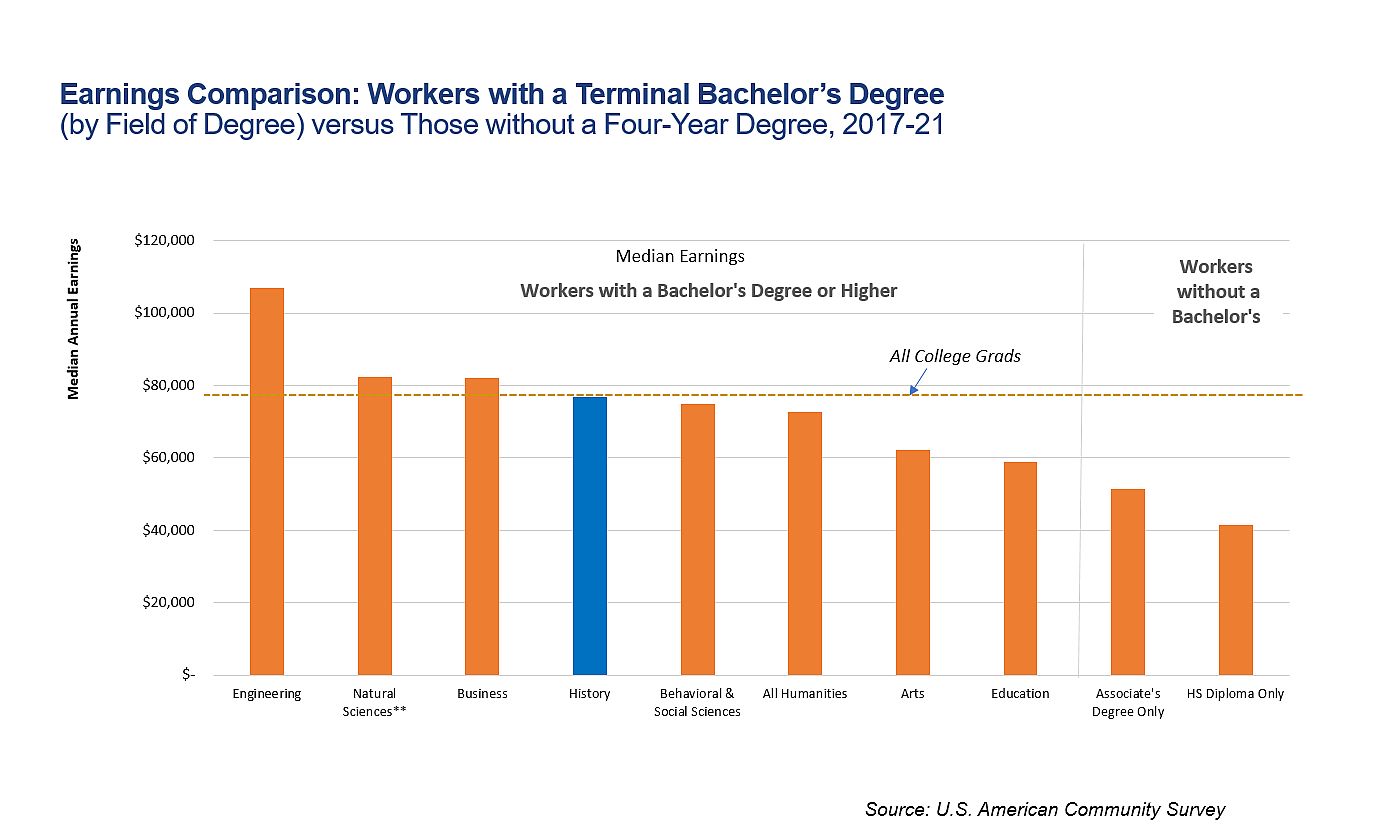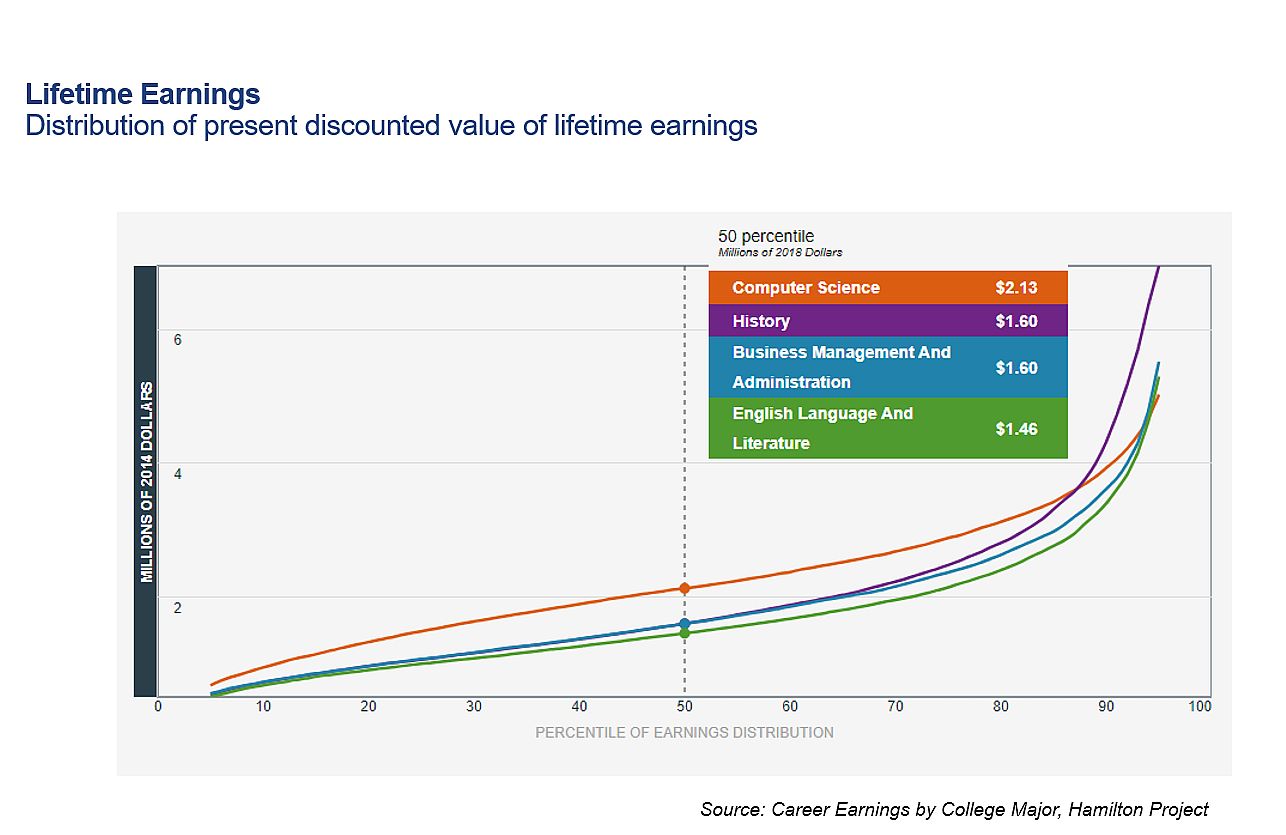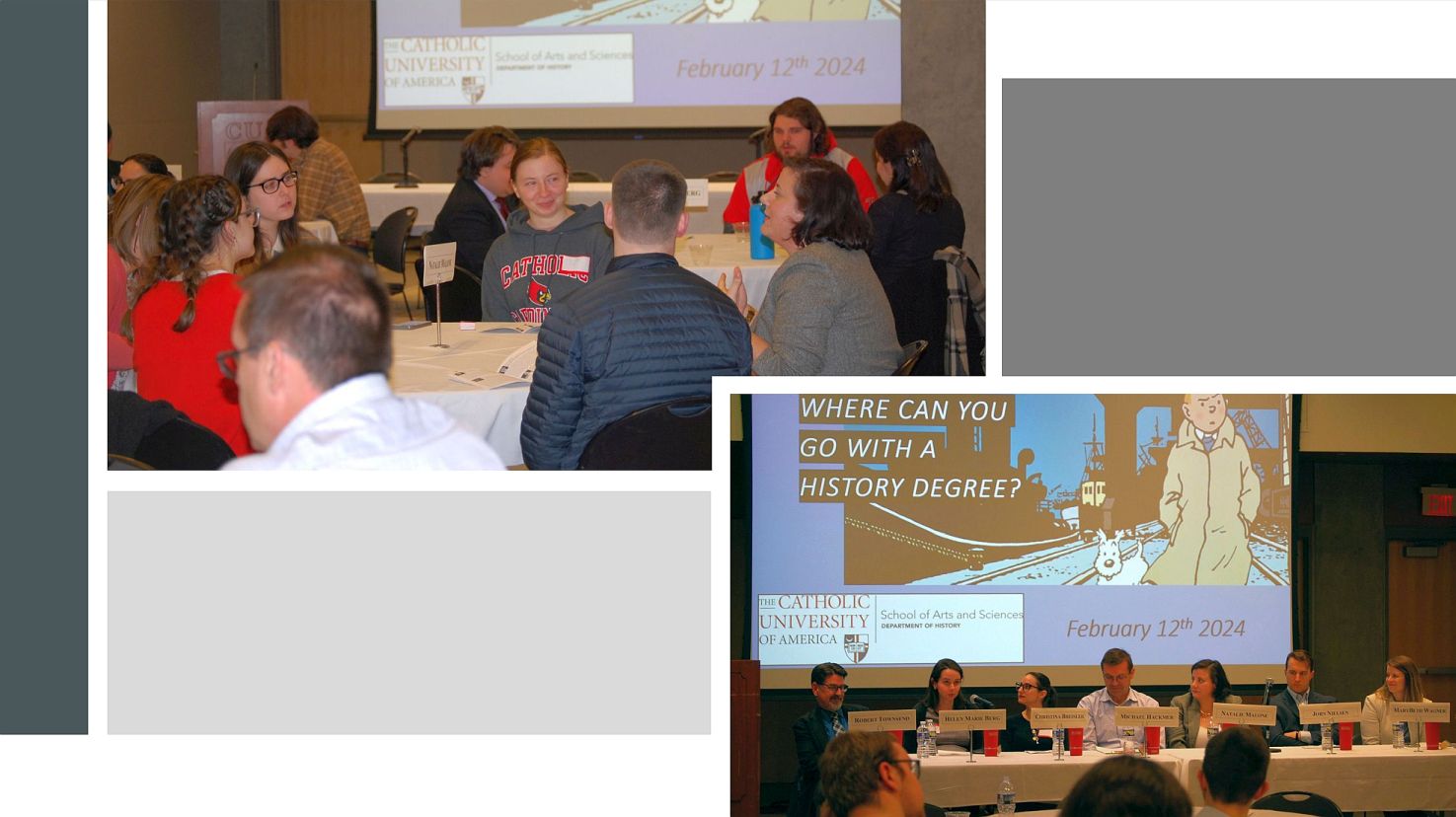It’s OK. We get it, really. The culture out there these days has bred a lot of skepticism about the value of liberal arts degrees in subjects like History. And students (and their parents and families) definitely should take a clear-eyed, close look at the implications of their choices, very much including the financial and career implications.
That close look should be grounded on the best data available, and not just reflexive reactions to shibboleths (yes, thinking of baristas here). What the data reveal may surprise you.
We’re grateful to Dr. Robert Townsend – an alumnus of our own department (B.A. 1988, M.A. 1990) and Director of Humanities, Arts, and Culture Programs at the American Academy of Arts and Sciences, who writes extensively about liberal arts and careers – for permission to reproduce his graphical displays about History majors (with data from the American Community Survey of the U.S. Census Bureau and the Hamilton Project of the Brookings Institution).

Where do history majors work? This chart (for national data) aligns with our own internal tracking of Catholic University History alumni. The largest sector represented here is business, in one form or another. An increasing proportion work in media, technology, or communications. About 10% to 15% of our students (and History majors nationally) go on to law school, a proportion that’s stayed remarkably stable over the past two decades. Some work in archives, libraries, museums, or other cultural heritage institutions. About 10% become teachers.

Even more foundationally: what are the salary prospects of History as opposed to other majors? This chart shows that median incomes for History majors are barely distinguishable from business and natural science majors, and in fact from all college graduates generally.

Means and medians (you’ll recall from Stats 101) can hide as much as they reveal, of course. Refashioning the salary data into distributions (from lowest to highest) of lifetime earnings (as this graph does) indicates that History graduates at the highest end of the distribution outpace (for instance) computer science graduates, but the picture is reversed at the lower end.
Of course, there are reasons beyond just the bare financial for valuing the humanities. We can’t put it better than Dr. Townsend himself: “The data is clear; History majors do quite well in their lives and careers after they graduate. And it’s not just me saying that: the entrepreneur Mark Cuban and the COO of BlackRock, Rob Goldstein, have recently noted that they will be hiring more history majors because we are best prepared to understand the limitations of the information produced by AI and know how to identify and fill in the gaps. I think the key is to better appreciate the skills developed in history classes – research, organizing information, writing and presenting it for an audience – can be as important as the subject of the class.” (For more on that last point, see the next article in this newsletter!)
But there are other things to think about, and this is one area where parents’ engagement is very constructive. For engineering majors, life is… not easier, exactly, but more linear: they’re likely to have careers as engineers. For nursing majors… careers as nurses. History majors face a less direct path, and that puts a premium on discernment. We encourage our students from the start to consider: what collateral interests do they want to develop? Media and tech? – consider a minor (or at least courses) in Media and Communications Studies or Data Analytics. Business? – Marketing or Management. International or intercultural affairs? – advanced languages, or area studies such as Asian Studies or Islamic World Studies. And the sooner a student discerns, the more feasible it is to craft a course schedule accordingly. Catholic University offers a variety of resources for seeking out internships and jobs that mesh with whatever path a student might take (check with the Director of Undergraduate Studies for more on this) and those are just as important for exploring career possibilities and compiling experiences.

We in the History Department take very seriously our obligation to be partners with students (and their families) in discovering and exploring their possibilities for career paths. Every year we bring back B.A. alumni from a variety of sectors (business, finance, law, communications, public history) for a career event complete with networking (scenes from above are from last February’s event). It is SO rewarding to overhear, after one of these events, one of our students say "I never realized a History major could become [X]"! Parents, encourage your students to participate! – again, as important for first-years as for seniors.
